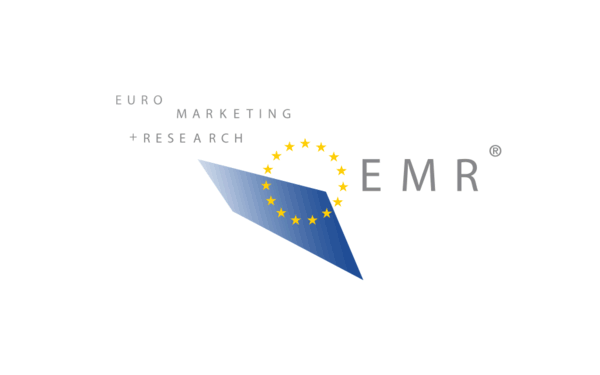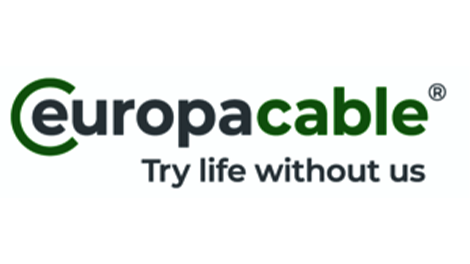Europacable – Join Europacable for the 2023 European Fire Safety Week
Europacable invites you to register to the 2023 edition of the European Fire Safety Week to be held in Brussels and online from November 13th to the 17th 2023.
Fire safety is a priority for the European wire and cable industry, and the energy transition should be seen as an opportunity to help improve citizens’ safety. The Fire Safety Week is a valuable opportunity for professionals and policymakers to learn about the latest advancements in fire safety, best practices, and regulations, as well as to network with industry experts, exchange ideas, and collaborate on strategies to enhance fire safety standards and policies across various sectors. Europacable will ask for a stronger and stricter product compliance enforcement through market surveillance and cooperation in the value chain.
Since its first edition in 2019, the organizers of the European Fire Safety Week have been increasing awareness of fire safety among decision-makers, as well as promoting efforts aimed at elevating fire safety to a higher priority on the EU agenda. This has resulted in the publication of the European Fire Safety Action Plan. Now it is time to take stock of the results achieved and plan for the years to come with new actions and a clear request for commitment from European Institutions, in view of the start of a new European political cycle in 2024.
During this fifth edition, Europacable will provide the European cable industry’s point of view in two sessions:
- Tuesday November 14th at 13h45 in the Workshop on (renewing) fire safety action plan;
- Wednesday November 15th at 16h in the High-Level Political Discussion in the European Parliament with key policy makers.
You can register and find more information on EuroFSA website below.
SourceEuropacable
EMR Analysis
More information on Europacable: See the full profile on EMR Executive Services
More information on Christopher Guérin (President, Europacable + Chief Executive Officer, Nexans): See the full profile on EMR Executive Services
More information on European Fire Safety Alliance: https://www.europeanfiresafetyalliance.org/ + The European Fire Safety Alliance is a project to reduce the risk from fire in the home and is delivered by an Alliance of Professionals from within the European Fire Sector. The European Fire Safety Alliance believes the vast majority of fire deaths that occur following an accidental fire in the home are preventable. It is also true that fire discriminates in as much as it affects the most vulnerable people (particularly the elderly) in the most vulnerable areas of society.
The European Fire Safety Alliance shares national knowledge and innovations on international level. We form an independent alliance of fire professionals and prevention specialists that does not support any individual fire safety product, technology or commercial organization.
EuroFSA is an authority on fire risk, based on a strong statistical evidence base. We do research, support and encourage research, studies and reports that highlight the dangers from fire in the home and support their widespread availability. We focus on sharing knowledge and we deliver strong scientific relevant consistent messages on home fire safety.
The core group is formed by:
- Elie van Strien, former Chief Fire Officer (NL)
- Krzysztof Biskup, former Director Scientific & Research Centre for Fire Protection (PL)
- Chris Addiers, Pres. Federation of European Fire Officer Associations (BE)
- Rene Hagen, professor of Fire Safety (NL)
- Rob Baardse, Executive Director Dutch Burns Foundation (NL)
More information on Krzysztof Biskup (Chair, European Fire Safety Alliance + Former Director Scientific & Research Centre for Fire Protection (PL)): See the full profile on EMR Executive Services
More information on the European Fire Safety Action Plan: https://www.europeanfiresafetyalliance.org/our-focus/ + The European Fire Safety Action Plan: ’10 actions that will improve Fire Safety in Europe’, focusses on fire safety in the residential environment. Because fire safety is a co-production. Only through (multidisciplinary) cooperation the fire safety of Europe’s citizens can be improved. Within this co-production, the EuroFSA will take a leading role to include the actors and partners that should be most involved in the follow-up of these action points.
More information on The European Union: https://european-union.europa.eu/index_en + The European Union’s institutional set-up is unique and its decision-making system is constantly evolving. The 7 European institutions, 7 EU bodies and over 30 decentralised agencies are spread across the EU. They work together to address the common interests of the EU and European people.
In terms of administration, there are a further 20 EU agencies and organisations which carry out specific legal functions and 4 interinstitutional services which support the institutions.
All of these establishments have specific roles – from developing EU laws and policy-making to implementing policies and working on specialist areas, such as health, medicine, transport and the environment.
There are 4 main decision-making institutions which lead the EU’s administration. These institutions collectively provide the EU with policy direction and play different roles in the law-making process:
- the European Parliament (Brussels/Strasbourg/Luxembourg)
- the European Council (Brussels)
- the Council of the European Union (Brussels/Luxembourg)
- the European Commission (Brussels/Luxembourg/Representations across the EU)
Their work is complemented by other institutions and bodies, which include:
- the Court of Justice of the European Union (Luxembourg)
- the European Central Bank (Frankfurt)
- the European Court of Auditors (Luxembourg)
The EU institutions and bodies cooperate extensively with the network of EU agencies and organisations across the European Union. The primary function of these bodies and agencies is to translate policies into realities on the ground.
Around 60,000 EU civil servants and other staff serve the 450 million Europeans (and countless others around the world).
Currently, 27 countries are part of the EU: https://european-union.europa.eu/principles-countries-history/country-profiles_en
More information on The European Commission: https://ec.europa.eu/info/index_en + The Commission helps to shape the EU’s overall strategy, proposes new EU laws and policies, monitors their implementation and manages the EU budget. It also plays a significant role in supporting international development and delivering aid.
The Commission is steered by a group of 27 Commissioners, known as ‘the college’. Together they take decisions on the Commission’s political and strategic direction.
A new college of Commissioners is appointed every 5 years.
The Commission is organised into policy departments, known as Directorates-General (DGs), which are responsible for different policy areas. DGs develop, implement and manage EU policy, law, and funding programmes. In addition, service departments deal with particular administrative issues. Executive agencies manage programmes set up by the Commission.
Principal roles in law: The Commission proposes and implements laws which are in keeping with the objectives of the EU treaties. It encourages input from business and citizens in the law-making process and ensures laws are correctly implemented, evaluated and updated when needed.
More information on Ursula von der Leyen (President, The European Commission): https://ec.europa.eu/commission/commissioners/2019-2024/president_en + https://www.linkedin.com/in/ursula-von-der-leyen/


